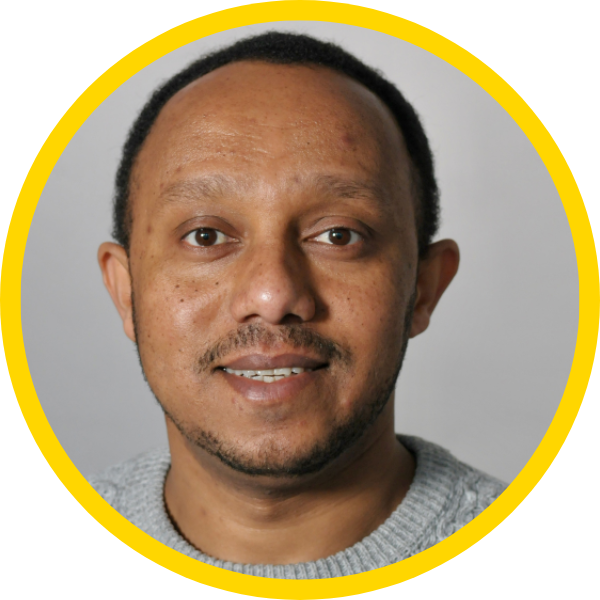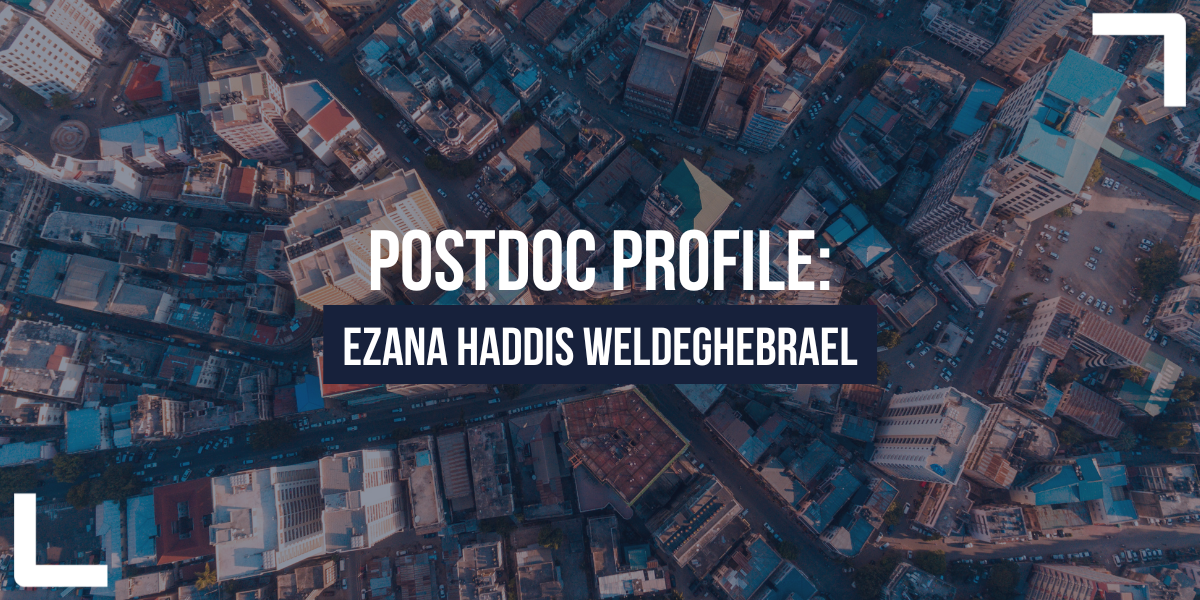Eight postdoctoral research fellows joined ACRC in early 2022, based at The University of Manchester’s Global Development Institute. As well as working on their own research, the postdocs are providing vital support across our eight urban development domains, with mentoring from dedicated members of our research team.
Here, Ezana Haddis Weldeghebrael talks about his interest in the political processes shaping development, his research into how informal settlement residents mobilise to improve their living conditions, and what he’s most enjoying about the ACRC fellowship.

Tell us a bit about your background…
I did my undergraduate and postgraduate studies in sociology and development studies at Addis Ababa University (AAU), and I also have an MSc in urban management and development from the Institute of Housing and Urban Development Studies (IHS). I then worked as an academic project coordinator and a lecturer at Ethiopian public universities, before deciding to pursue my education further, and was awarded a PhD in planning and environmental management from The University of Manchester. Since finishing my PhD, I have been working at The University of Manchester in different capacities – previously as a course unit lecturer, GCRF visiting postdoctoral fellow and most recently as a research associate in the African Cities Research Consortium.
How would you explain your research to a friend or family member?
My research focuses on critically understanding the political processes shaping urban development. Conventional urban planning is presented as an apolitical and technical process, used to efficiently organise modern cities. Yet in practice, it prioritises the interests of political and business elites, while marginalising the majority urban poor, especially in the global South. But these marginalised groups are not passive victims of the process; they strategise to survive and expand their opportunities. So, my research broadly focuses on understanding the political and economic forces that adversely affect urban poor communities and how they respond to their exclusion. I also want my research to contribute to the efforts of these groups in challenging their marginalisation. For example, my GCRF-funded postdoctoral research – influenced by Slum Dwellers International – facilitated women-led, saving-based social organisation and participatory research in one of Addis Ababa’s inner-city settlements.
What does your role within ACRC entail?
Within ACRC, I have a dual responsibility. First, I am responsible for supporting the research on crosscutting themes (finance, gender and climate change) and other broad aspects of ACRC work. Second, I am also working on my own research project, which compares and contrasts how informal settlement residents mobilise and strategise to improve their housing and living conditions in Harare and Addis Ababa. The study aims to capture how social organisations of informal settlement residents capitalise on the political opportunities and minimise threats from their respective governments, in their effort to improve their housing and living conditions.
“My research broadly focuses on understanding the political and economic forces that adversely affect urban poor communities and how they respond to their exclusion. I also want my research to contribute to the efforts of these groups in challenging their marginalisation.”
What are you finding most interesting about your work with ACRC so far? What are you most excited about?
The most exciting thing about my fellowship at ACRC is the opportunity of collaborating with accomplished and emerging researchers in their field. For an early career researcher, such as myself, ACRC provides an ideal platform for learning, building networks and expanding my research scope. Working within such a transdisciplinary research environment allows me to expand my analytical lens and adopt a comparative research approach, while the mentorship scheme within my fellowship will help me shape my academic career strategically. Last but not least, working alongside young and enthusiastic ACRC fellows is great for building collegiality and we all help to motivate each other.
In a few words, what one issue do you think needs to be prioritised to improve urban development in African cities?
Planning with, not against, disadvantaged communities.
What do you enjoy doing in your spare time?
I enjoy walking/hiking, reading books and socialising with friends, along with watching movies, TV shows and documentaries in my spare time.
Note: This article presents the views of the author featured and does not necessarily represent the views of the African Cities Research Consortium as a whole.
The African Cities blog is licensed under Creative Commons Attribution-NonCommercial-NoDerivatives 4.0 International (CC BY-NC-ND 4.0), which means you are welcome to repost this content as long as you provide full credit and a link to this original post.


